CLASSIFIEDS: Being normal and luxurious
In Europe doing things in a normal way
No new property updates this week; I’m traveling and thought I’d write about that. If you’re curious about the origins of this newsletter, try reading the story in part one and part two.
For now, please enjoy these musings on what it feels like for me in Europe, with some photos I’ve taken along the way. This becomes a travel blog for a moment…
I’m in Europe for the first time, leaving France, where I’ve been for the past week, and headed to Tuscany. Growing up, we didn’t have the money to travel, and being in the States — a place already so vast and varied in cultures and landscapes — my family took road trips. I don’t know what happened in my twenties1, but here I am, 30 years old in one month, and having my Euro awakening. Maybe it’s embarrassing to all of you who already knew about the magic of international travel and took gap years or backpacking trips in your early twenties (although only ~50% of the U.S. population has a passport up from 27% in 2007, so travel is far less common than the internet may propagate), but here I am now.
A few sayings have been guiding my time here, the first being, When something changes, something changes, and the second being, Gratitude turns what we have into enough.
I’ve never done a trip on more of a budget, let alone a trip to France and Italy, yet here I am feeling more present than I ever have as a traveler.
This trip has been unbelievable; I say unbelievable because one year ago, I’d never expect I’d be on a walk down a small country road in the south of France past a vineyard that grows the wine we drank at dinner, checking a fig for ripeness while a nightingale sings nearby. It feels luxurious and yet here it’s normal. I arrived in Firenze late and took a taxi to my friend’s small, sweet apartment with a driver who drive it like he stole it, as they say. My friend and I sat and ate fresh olives from her “olive guy,” red wine, tarallini fragrantini from Puglia in the south and little elevated fig newtons called “Settembrini” until two a.m. Normal. We talked about what’s normal.
In the city
In Paris, I met Sascha, a guy in his mid-20s who runs a record label called Providenciales Records on the side. He started the label as a means to an end when he realized that with the right legalities in place, he could remaster and reissue one record in particular: my dad’s old band, Nimbus' record Children of the Earth. In 2019, he partnered with Bill, an old bandmate of my dad’s, sent the old files from the 1979 record to be remastered at the Carvery in London, and reissued 500 copies of the record on vinyl. I discovered all of this when an old coworker sent me the record on Bandcamp and in shock seeing this old record digitized, I messaged the label. Since then, Sascha and I emailed occasionally and he extended an invite to meet up if I ever made it to Paris. A couple weeks ago, I made it to Paris, and we met for drinks. I asked Sascha how he found my dad’s record, how he came to love it. He cited a story where he was walking outside of Ed Banger records (Justice, Uffie, Breakbot) where they had a table set up selling records; he bought what happened to be his first vinyl record directly from Pedro Winter’s hands because he thought it would be a cool story. This purchase led to an obsession with vinyl records and he started collecting, amassing now ~2,000 vinyl records that line his living room wall. When he found Children of the Earth (on YouTube…) and fell in love with the record, he couldn’t find a vinyl copy, so he reached out to the only band member he could find, Bill Capsalis, to work together to reissue more.
Sitting with Sascha in Paris, three years after we first talked over email, I felt the absurdity of life, how we end up being in the place we are at any given moment. We sat there, two near-strangers, both people who will cold-email someone. We talked about music, he recommended food in Japan for my trip later this year, and told me about the road trip he has planned around Texas and Louisiana. I gave him recommendations for my favorite food and music in New Orleans. I felt, in one sense, like I’d arrived. Sometimes those cold-email slides work out.
In the valley
While in France, I did cabin research in a small village in the foothills of the Pyrenees, met a French/Swiss lesbian couple in their 70s who live in an off-grid rustic old sheep herder’s cabin, swam in the Mediterranean Sea and filled my nose with saltwater, hiked up to an ancient Cathar castle at the top of a mountain, ordered a lot of expresso and tried to order an iced Americano with 3 pumps of chocolate syrup for my mom’s partner, which was really embarrassing because of course they couldn’t do it but at least I tried, filled my water bottle at an ancient spring near a woman doing her laundry, chugging, and refilling, and last week, fell dead asleep in a Parisian park that used to be an 18th century landfill before being woken up by a crow click. I’ve gone to a fried food festival on the outskirts of Firenze, realized I know exactly two Italian words, swam in the Mediterranean again.
Alex, around my age, has a small property nearby that was given to him by an elderly man in the next town. Alex is making a homestead, currently building a wigwam structure out of bamboo harvested from his friend’s property. A local volunteer group has extra fruit trees, so he’s been gifted some of those, and the vision for his food forest is slowly taking shape, in no rush. I’ve learned from him, helped clear a path, learned what plantain can do for a burn.
Everything in this village is marked by its proximity to the few major landmarks: near the church, by the cemetery, up the hill, down near town. While much has modernized, I felt how much of this village’s cogs still run how they did hundreds of years ago. Many of the same families live in houses passed down through generations. The guy across the way who wears the tiny shorts and has the black cat named Baloo loves to pause whatever he does inside his house to enjoy an ice cream cone in the sunny courtyard at 2pm. Travelers are everywhere in the Occitane region, trading, playing music, sleeping near the village soccer field or near the river. The bread truck comes by every day around 9:30am and honks only once. The square outside of the window I wrote these words in is filled with an olive tree, blush rose bushes, a giant aloe and tiny red flowers with greens that look like frisée. It’s beautiful, and so much is imperfect. I feel complex feelings knowing that for the time being, I have to return to the States, while also knowing I’m returning to friends, to my love, to my cats and my home, to Another Place.
I’ve been trying to think of a way to communicate what I’ve been experiencing the past week in a way that’s fair to its intricacies, its discomforts, its unbelievable pleasures and joys, its complexities and its nuances, and one night this week provided a lens.
A few nights ago there was a fire two doors down. My room for a week was on the top floor of a house built four hundred years ago, down the alley from a church built in the 16th century. Every night while there, I slept with the window swung wide open, usually to the sound of frogs until I approached sleep and turned my travel noise machine on, sure to block every sound except the church bells that woke me up daily at 7am. The other night I was still up, trying to savor the last bits of a perfect evening walk I’d just returned from. After some loud boot steps down the ancient alley below my window, I started smelling smoke, hearing crackling. My brain went to “bonfire” until some sense told me people don’t start bonfires in a tiny village after 11:30pm during a drought. It became clear that a fire had started in the barn two doors down (a barn is also a garage), quickly taking up the centuries-old wooden barn door and support beam although stopping there, as the structures here are mostly made of stone and concrete. Pierre, who I’m calling my host father, saw the flames from the kitchen window downstairs and ran out, transporting buckets of water back and forth, shouting in French to “call the mayor.” Ten minutes later, the fire truck arrived from the nearest town to connect their house to the water source and put the flames out completely.
The next morning the murmurs around the village — a place of under 600 residents — were that it was arson, likely by kids, but every teevee show has me knowing2 this was textbook cheating revenge (not on record, please do not repeat). The small, hand-carved circular cat door at the bottom of the charred door was an easy entry for flames. When I walked over the next day to survey the damage, a few pairs of wedge heels lay outside the burnt door, charred crispy to the bone, never to be worn again. There’s something about a single, charred high heel laying on the ground…
What’s normal
I passed a sign in one of the many small villages we passed through in southern France every day that said “Be Normal.” It was maybe an ad for something, and in a primarily French-speaking area, the English translation could have a different feel than the urgent directive it sounds like to me. BE NORMAL! I said to myself as I zipped up my human suit and laughed politely.
Normalcy and luxury can coexist and here they can coexist cheaply in a place that prioritizes locality, depth, knowledge of place. The other night I went on the most magical night walk of my life and afterwards ran upstairs to write you all a letter. A group of six walks in fluid choreography, I’ve noticed. You don’t have to talk with one person long on a walk, but you can if you want to; it’s acceptable to be distracted by a smell or the look of a tree and drop back, alone, for a while, then pick up the pace and rejoin another person and ask them what kind of bird that is, then walk in silence again. On that walk, I passed bitter almond trees, a walnut tree, a row of olive trees, green oak singing above us everywhere, small pines, scotch broom with its bright yellow flowers against the verdant green of most everything else. California poppies and vermillion poppies dotted the landscape everywhere and popped up in the middle of the trail. At one point there was a cooler spot in a dip in the trail (like the road I went down last night in Firenze that is, to locals, “known for being colder than the other roads”), and suddenly the cool air swirled with scents of jasmine, sweet pea, dirt, grass. We walked along lines of mauzac grape vines in zig zag lines. We passed a field of vines that produces the grapes to make the sparkling white wine we drank at dinner a couple hours earlier.
All around us were the sounds of nightingales, a type of robin, an eurasian collared dove which makes a kind of coo-coo, and a new one: a loud throat, throbbing hum almost like a bullfrog, the eurasian nightjar. This is normal. To you, wherever you’re reading this, that is normal. While here, I’ve wondered many times, how can it be that something so fragrant, pleasurable, delicious, beautiful is normal? At home, I experience beauty in many things, and also, I find it difficult to find the level of quality and taste for a price that isn’t prohibitive and then considered bougie or inaccessible. I find it difficult and heartbreaking to search for green space and a trail to be on that isn’t soundtracked by loud engines. The way the U.S. system has been engineered is to promote interiority, mass production and mass consumption and ship nationwide, providing an amazing amount of options with no clear sense of origin. This smooths any chance of abnormality. This makes Costco very cheap and what does it matter if, in the end, you’re still eating a strawberry? It may not matter to you. This does matter to me and is a choice I try to make, informed by friends, by working at a small local grocery that primarily tried to sell the produce and goods of farmers within 50 miles of the store, by seeing that work and lives of people up-close who try hard to produce quality things. I’ve tried to purchase from people that are local and care about their craft. Unfortunately, because of the system Americans live within, this often means these goods are expensive, reserved for the stereotype of the basket-carrying wealthy young mom in Park Slope, or expensive and just a choice I choose to spend my money on when I can.
What I’m trying to say is that on this trip, I’ve experienced that high-quality, local food and drink is a quarter of the price it is in the U.S. and often, is substantially better. It feels unfair, clear that we’ve all been duped in America. I’m hopeful that the system can change, but I don’t have clear ideas on how. All I know it that this is normal.
Despite the accessibility of eating and drinking once here, travel is a luxury, and I’m well-aware of that. I’m extremely fortunate to know people here and be shown versions of possible lives as a visitor. The gratitude turns what I have into enough. I don’t have money to return with a suitcase of souvenirs; being here in this place with these smells and tastes and people is the gift.
The breeze is cool as I write these words and every few minutes I get a strong whiff of charred wood from last night’s fire. It’s recess now at the school down the block; they try to keep the village school open, even if just for ten children. Henriette, the neighbor across the alley, originally from Senegal, just got home from errands. I’m drinking coffee out of my Spiderman mug that for some reason I keep choosing each morning. By the time you’re reading this, I’ll be in Firenze recovering from a fried food festival, a festival that a community rec football team named Lebowski (actually named after the Big Lebowski) puts on each year. If this life were The Truman Show — which it is — it all has the feeling of being engineered particularly for me.
All of this is research for the life I’m currently living and want to live. Everything is research, not to extract, but to learn and hopefully, if the visions I’m having are true, have a chance to create my own combination.
There are eight billion ways to live a life. I learn from everyone and know that the decisions I make will make it my own, but never on my own. In this life, we make it out of kindness and collective; that’s as ancient as it gets. I had this idea that self-sufficiency meant solitude, meant doing it on my own; I now realize the self in that is the fortitude to zoom out and see how all the people and pieces connect to form a whole. How do we each fit within it? The other night, seeing the barn fire be put out by neighbors hurling buckets of water, I was reminded that outside of my beloved 100 year-old grandma slaying at euchre, there is no such thing as going at it alone.
Could it have been the lack of money and complex-PTSD? Perhaps. We’re here now.
I do not officially know this


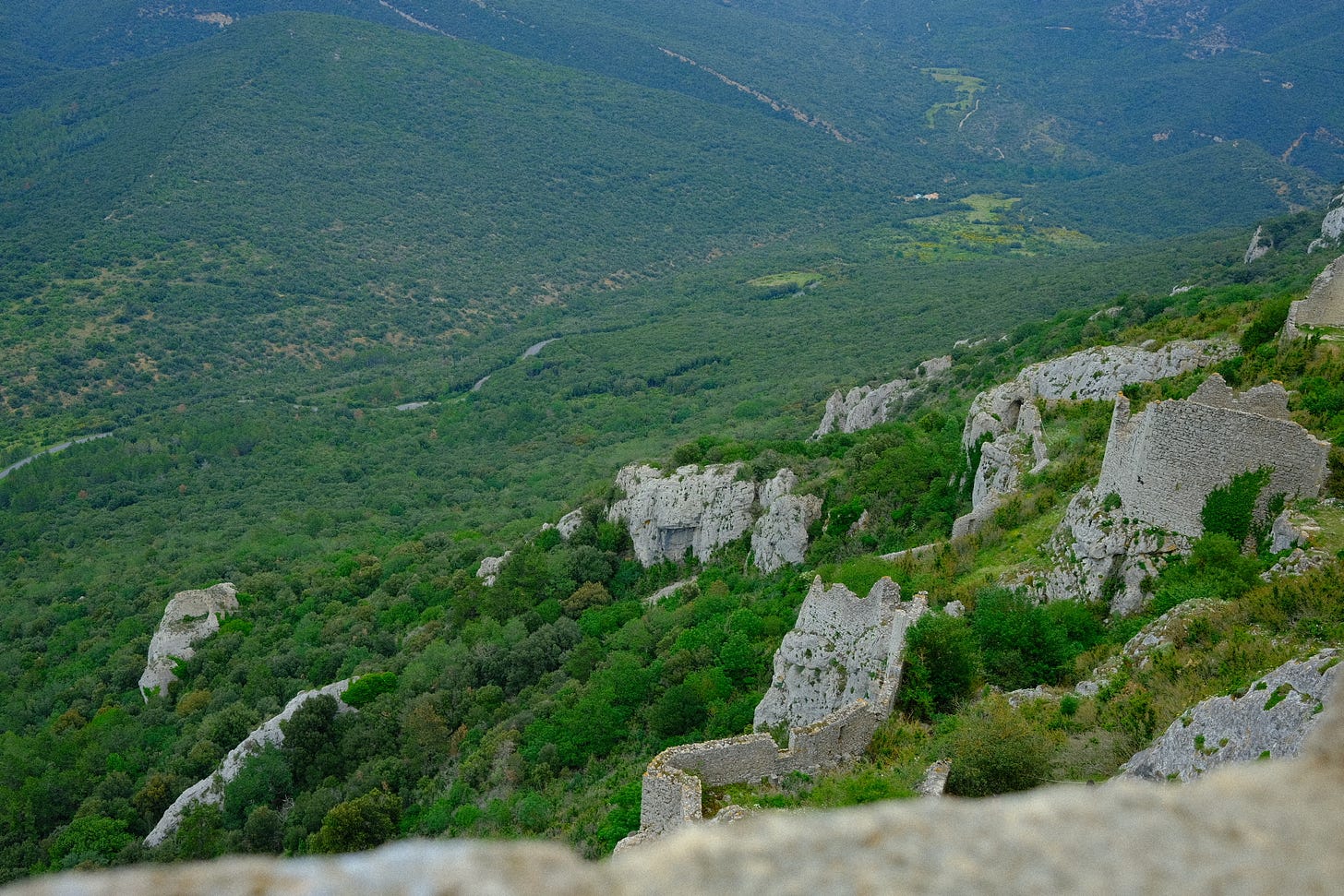


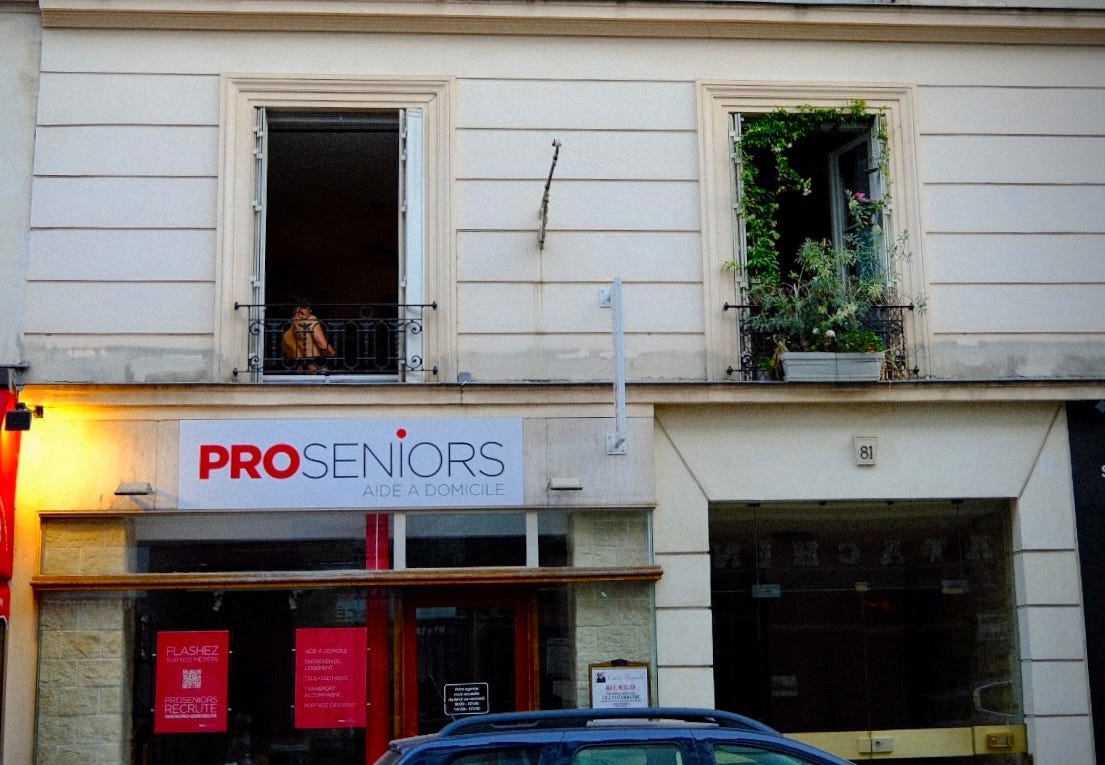


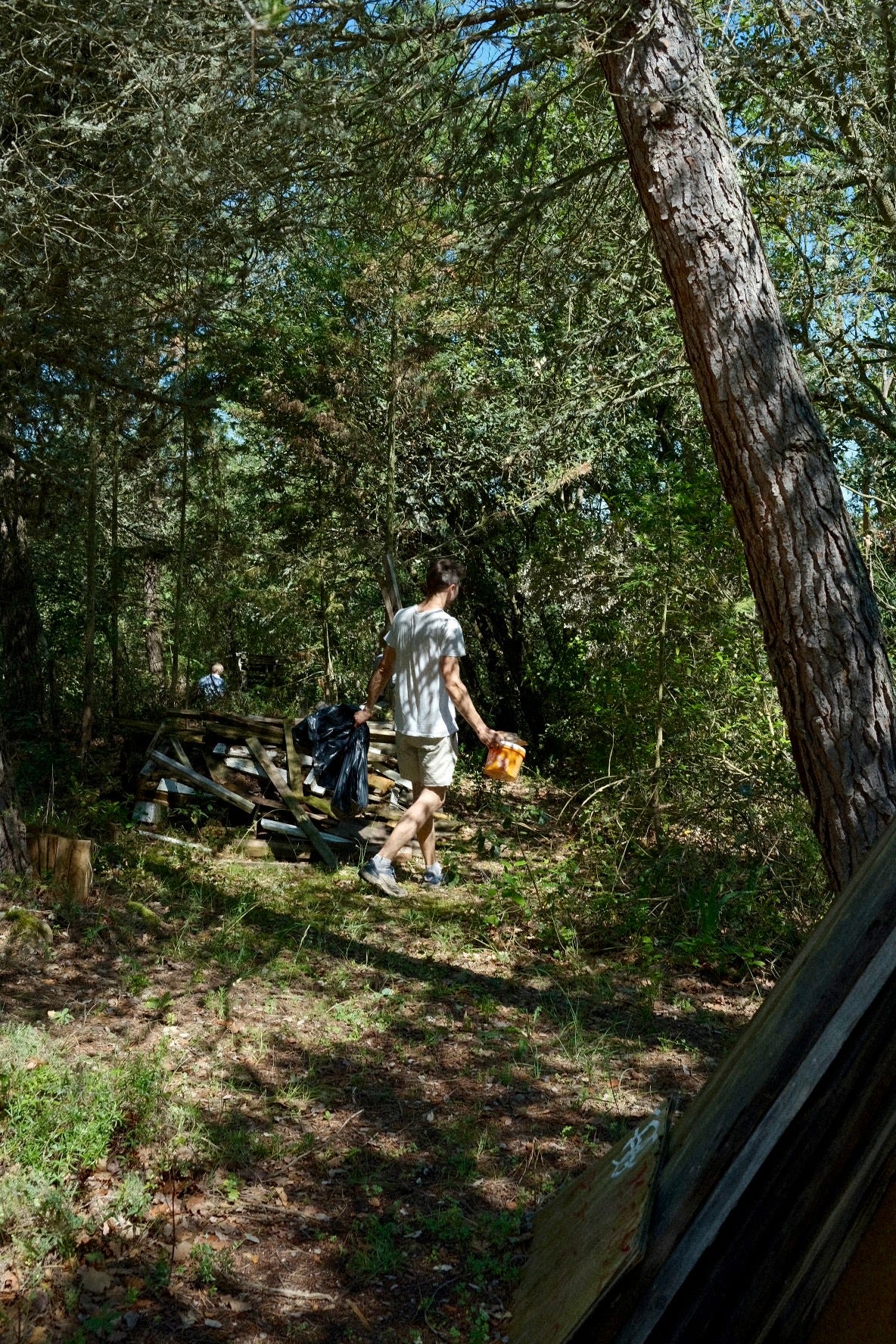

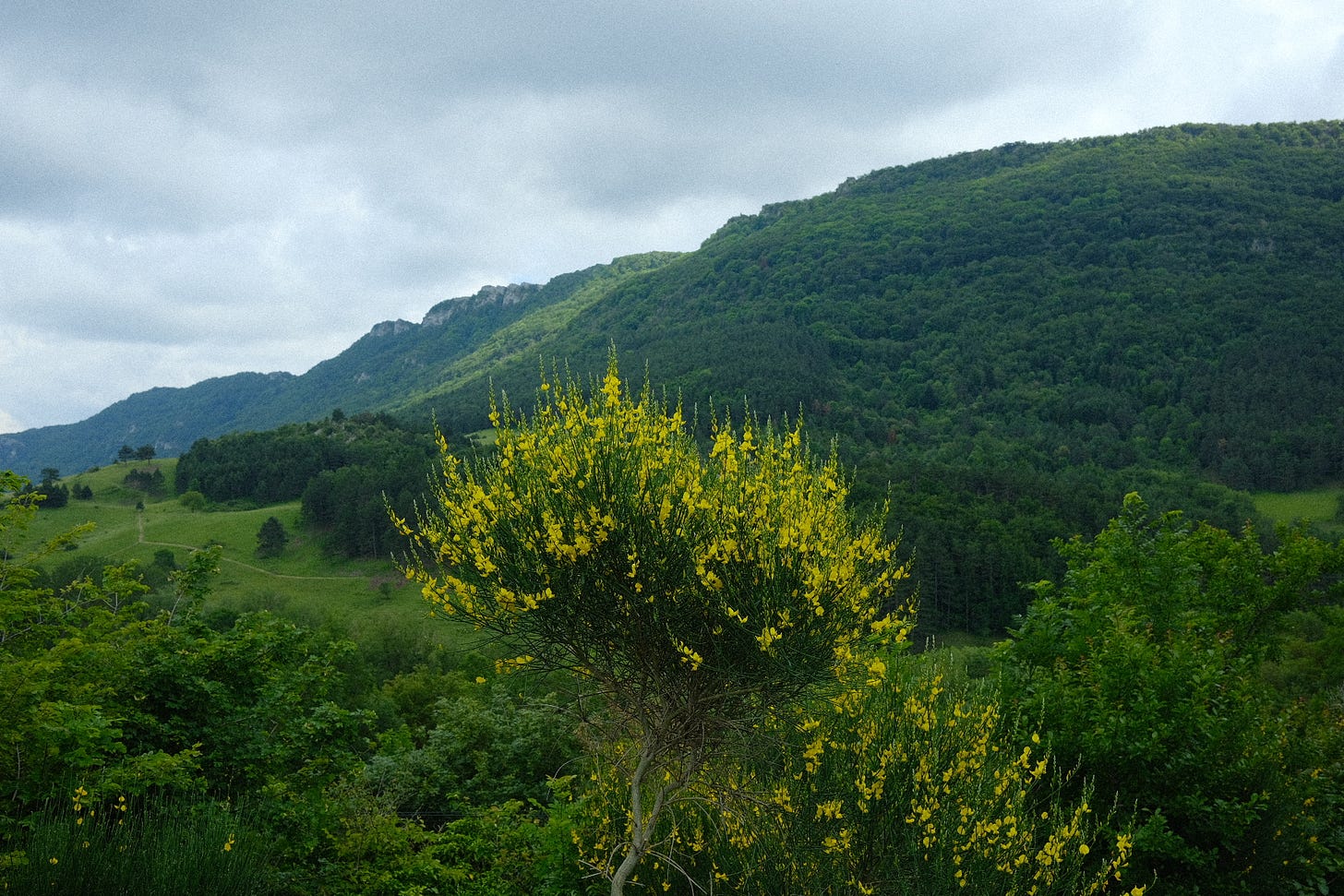

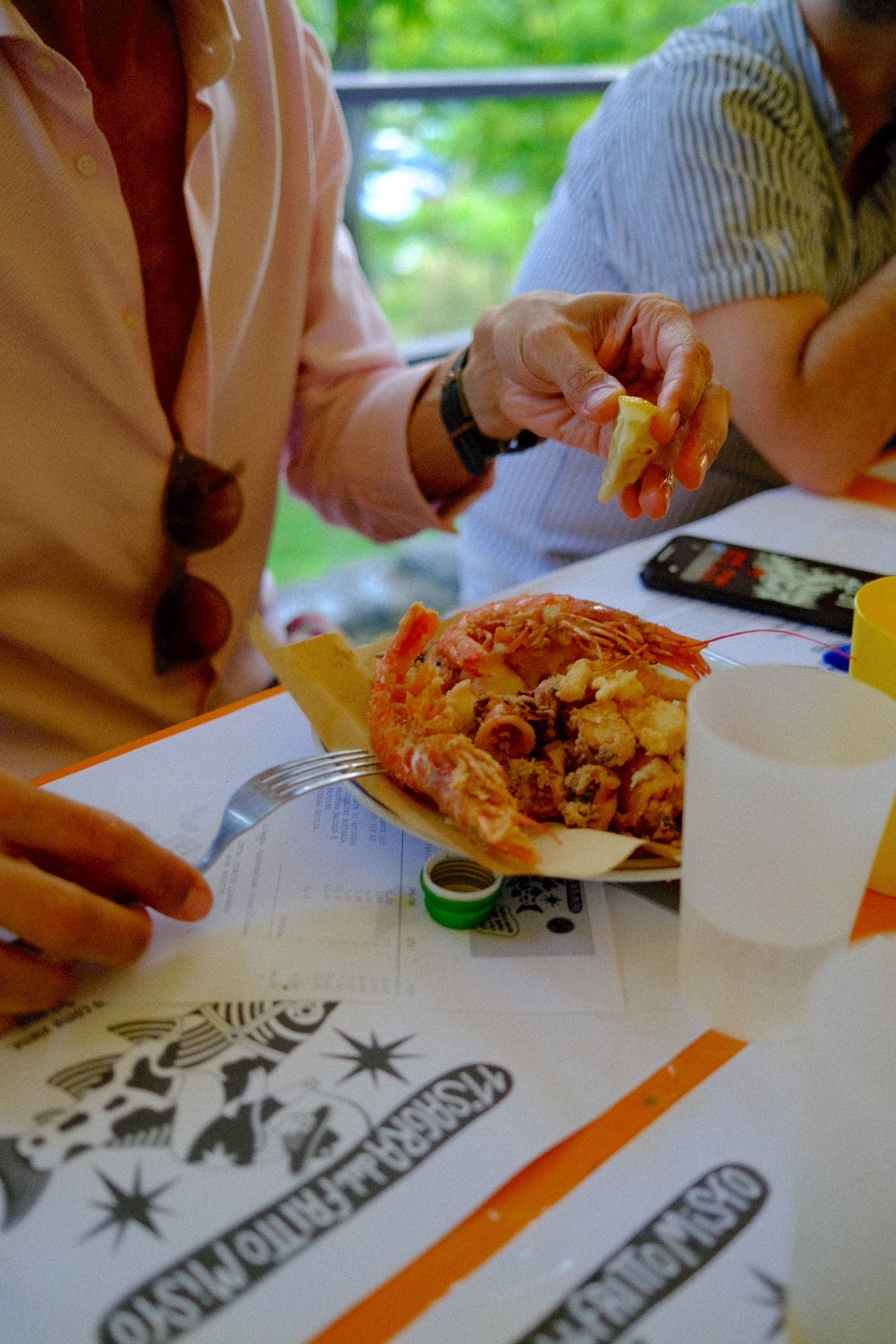
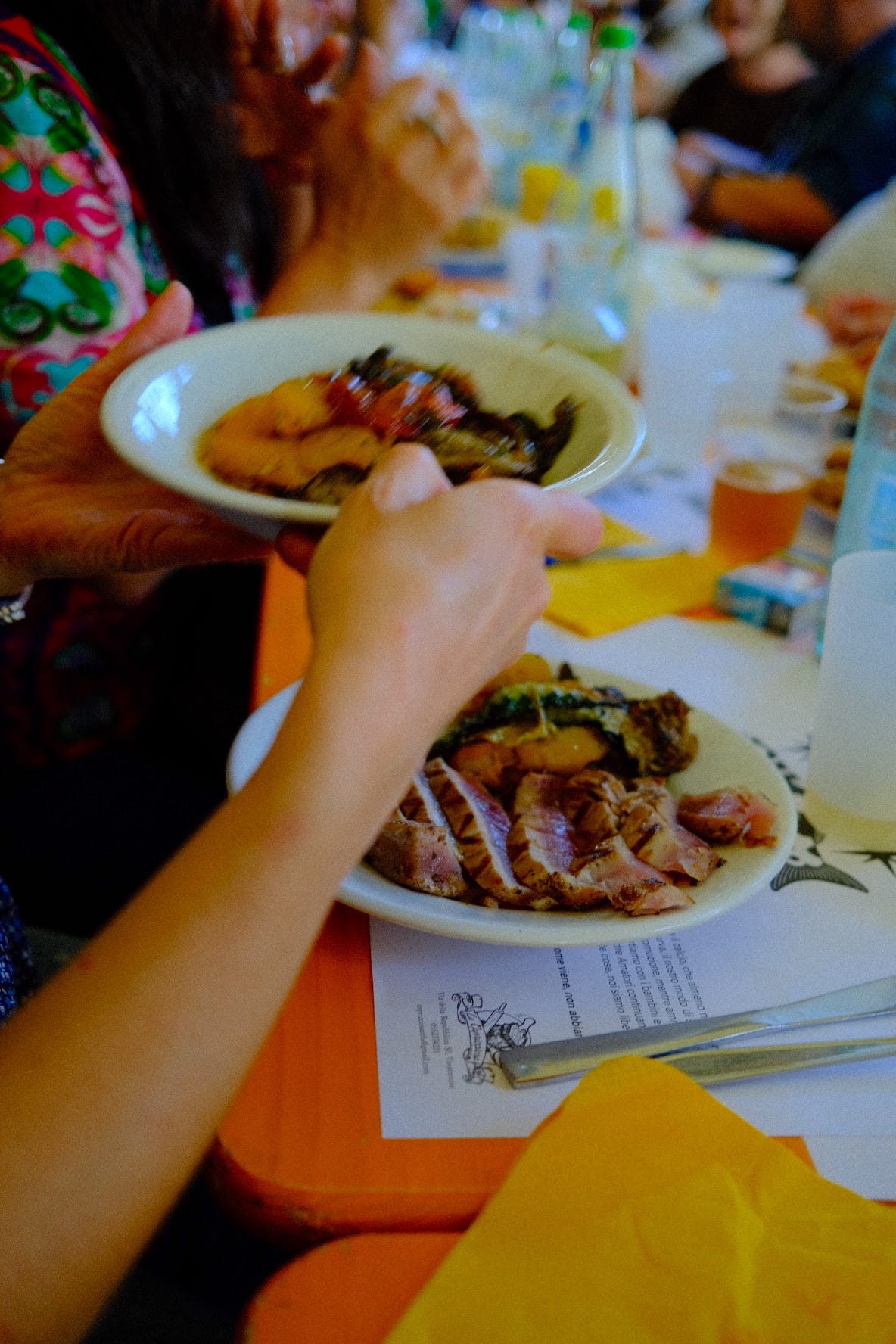

Beautiful post! Your writing is stirring to the point of haunting.
Trying not to spiral too deeply in to "When something changes, something changes"... meant as in a c'est la vie way? In that when changes happen, many things change in reaction? When change happens, it changes you?
"In this life, we make it out of kindness and collective; that’s as ancient as it gets." I love this line, Elle